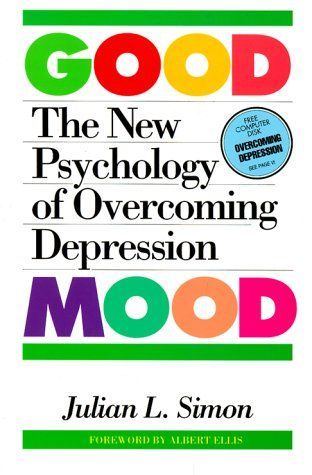
Good Mood The New Psychology of Overcoming Depression
In 1975, Julian Simon had been severely depressed almost every day for 13 years. He had tried various treatments, always without success. Then, he decided to make one final attempt to get rid of the depression - before giving up. Professor Simon began reading about the new 'cognitive' therapy, with increasing hope, but with considerable doubts. In the ensuing intellectual and emotional struggle, Simon identified the psychological mechanism that is the immediate cause of sadness and depression. Within two weeks, he had banished his depression, and he has kept himself undepressed until now. Since 1975, Simon has been glad to be alive, and has taken pleasure in his days. Occasionally he has even been ecstatic, skipping and leaping from joy, especially in the early years, when relief of the agony of depression was fresh. He has continued to read the psychological literature on depression, and to hone and develop the theory and practice of the method that saved his own life. Some philosophers have long understood that the self-comparisons we make affect our feelings. But self-comparisons have not heretofore been systematically explored or integrated into scientific understanding of the thinking of depressed persons. Good Mood integrates this element with the other elements of cognitive therapy, now proven in experimental studies to be unsurpassed in effectiveness for alleviating depression. Whenever you think about yourself in an evaluative waywhich most of us do every day - you compare the state you think you are actually in with some other 'benchmark' state that you think you ought to be in. If the self-comparison is positive, you feel pleasure. If the comparison is negative, you feel pain. If you also feel helpless to change the situation, you will feel sad. If you keep this up continuously over a long period, you will probably become depressed. Good Mood presents a detailed account of the origin and functioning of negative self-comparisons (neg-comps), and the various ways of eliminating them. It will be useful for depression sufferers, their friends and relatives, psychologists, and counselors.